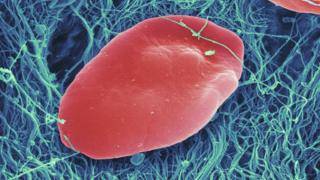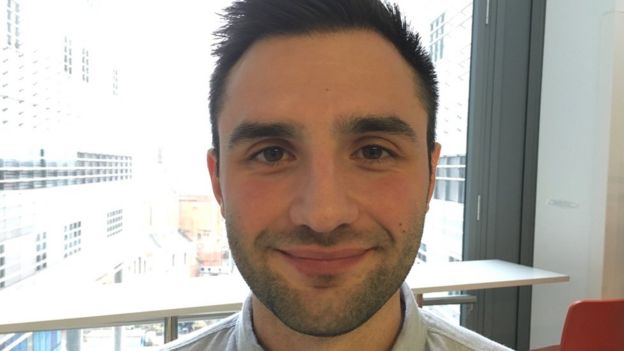Navigation
Install the app
How to install the app on iOS
Follow along with the video below to see how to install our site as a web app on your home screen.

Note: This feature currently requires accessing the site using the built-in Safari browser.
More options
You are using an out of date browser. It may not display this or other websites correctly.
You should upgrade or use an alternative browser.
You should upgrade or use an alternative browser.
Hemophilia, has been preprogramed biologically by nature.
- Thread starter xotoxi
- Start date
- Jun 18, 2008
- 3,748
- 813
- 130
The white female is a carrier for the Hemophilia gene, but they do not display the symptoms of hemophilia.Do the research!!
Hemophila is only displayed in White males.

JenyEliza
Princess of Rhetoric
And the black female is the carrier of HIV/Aids, Herpes Simplex I, II, III, IV and V, Chlamydia, HPV, Scabies, and Syphillis.
She is often symptomatic, but may not always be.
She is also the carrier of the seed of whichever man flips her skirt on ovulation day. Some make it to birth, some are aborted as a means of birth control.
These are FACTS. Any questions, dear Scientist?
Your anti-white woman shit is wearing thin and getting old.
She is often symptomatic, but may not always be.
She is also the carrier of the seed of whichever man flips her skirt on ovulation day. Some make it to birth, some are aborted as a means of birth control.
These are FACTS. Any questions, dear Scientist?

Your anti-white woman shit is wearing thin and getting old.
Hemophilia B Gene Therapy Breakthrough...

In a Breakthrough for Gene Therapy, an Injection Works on Hemophilia B
Saturday 10th December, 2011 - A virus carrying a replacement gene for blood clotting was used by University College London researchers to help six patients.
In a Breakthrough for Gene Therapy, an Injection Works on Hemophilia B
Saturday 10th December, 2011 - A virus carrying a replacement gene for blood clotting was used by University College London researchers to help six patients.
Medical researchers in Britain have successfully treated six patients suffering from the blood-clotting disease known as hemophilia B by injecting them with the correct form of a defective gene, a landmark achievement in the troubled field of gene therapy. Hemophilia B, which was carried by Queen Victoria and affected most of the royal houses of Europe, is the first well-known disease to appear treatable by gene therapy, a technique with a 20-year record of almost unbroken failure. I think this is a terrific advance for the field, said Dr. Ronald G. Crystal, a gene therapist at Weill Cornell Medical College. After all the hype in the early 1990s, I think the field is really coming back now.
Gene therapy has had minor successes in very rare diseases but suffered a major setback in 1999 with the death of a patient in a clinical trial at the University of Pennsylvania. Another gene therapy trial treated an immune deficiency but caused cancer in some patients. The general concept of gene therapy replacing the defective gene in any genetic disease with the intact version has long been alluring. But carrying it out in practice, usually by loading the replacement gene onto a virus that introduces it into human cells, has been a struggle. The immune system is all too effective at killing the viruses before the genes can take effect.
The success with hemophilia B, reported online Saturday in The New England Journal of Medicine, embodies several minor improvements developed over many years by different groups of researchers. The delivery virus, carrying a good version of the human gene for the clotting agent known as Factor IX, was prepared by researchers at St. Jude Childrens Research Hospital in Memphis. The patients had been recruited and treated with the virus in England by a team led by Dr. Amit C. Nathwani of University College London; researchers at the Childrens Hospital of Philadelphia monitored their immune reactions.
Hemophilia B is caused by a defect in the gene for Factor IX. Fatal if untreated, the disease occurs almost only in men because the Factor IX gene lies on the X chromosome, of which men have only a single copy. Women who carry a defective gene on one X chromosome can compensate with the good copy on their other X chromosome, but they bequeath the defective copy to half their children. About one in 30,000 of newborn boys have the disease, with about 3,000 patients in the United States.
MORE
Breakthrough in blood platelet manufacturing...
Huge leap to mass produced platelets
Fri, 08 Apr 2016 - Scientists have made a significant leap towards mass producing platelets - the part of the blood that forms clots.
Huge leap to mass produced platelets
Fri, 08 Apr 2016 - Scientists have made a significant leap towards mass producing platelets - the part of the blood that forms clots.
The NHS and University of Cambridge team have discovered how to grow the body's platelet factories in the laboratory. It could provide a new source of platelets to stop heavy bleeding, for example after a car crash. But the researchers need to make the process more efficient before starting trials. If you donate blood, then it is separated out into red blood cells, plasma and platelets so patients are given only the component they need.
Platelets are needed after trauma, surgery, leukaemia therapy and in some blood disorders like haemophilia. "We're totally dependent on blood donation to produce those platelets," said Dr Cedric Ghevaert, a consultant haematologist. His team has been trying to grow megakaryocytes - the platelet mother cells that live in your bone marrow and manufacture the clotting platelets. Their breakthrough, reported in the journal Nature Communications, was the discovery of a set of chemical switches needed to create megakaryocytes in the lab.

Dr Ghevaert described their results as a "major step forward" and told the BBC News website that "the next big step is to get enough platelets out of each megakaryocyte". The lab-made cells produce around 10 platelets each. But each one functioning normally in the bone marrow would produce up to 2,000. It is hoped that recreating the same conditions as in the bone marrow could make the cells more effective. If the researchers are successful, then lab-grown platelets could be more useful than ones collected in a blood donation.
Dr Ghevaert added: "We can modify the platelets so they can trigger the clotting even better which would have huge advantages indeed for patients who have had a crash or a bleed or even in soldiers who have been injured." It could also allow doctors to have stockpiles customised to different patients. Platelets come in different forms just as red blood cells come in A, B, O and AB. And some platelet types, particularly those common in black and Asian ethnic groups, are relatively rare.
Huge leap to mass produced platelets - BBC News
Mind-blowing Hemophilia breakthrough...

Haemophilia A trial results 'mind-blowing'
14 December 2017 - British doctors say they have achieved "mind-blowing" results in an attempt to rid people of haemophilia A.
Haemophilia A trial results 'mind-blowing'
14 December 2017 - British doctors say they have achieved "mind-blowing" results in an attempt to rid people of haemophilia A.
Patients are born with a genetic defect that means they do not produce a protein needed to stop bleeding. Thirteen patients given the gene therapy at Barts Health NHS Trust are now off treatment with 11 producing near-normal levels of the protein. Jake Omer, 29 from Billericay, Essex, was on the trial and says he feels like he has a new body. Like 2,000 other people in the UK, his body could not make clotting factor VIII. A minor injury used to cause severe bleeding. He remembers losing two front teeth as a child and bleeding for days afterwards. Even the impact of walking would lead to bleeding in his joints and eventually cause arthritis. Jake has needed at least three injections of factor VIII a week for most of his life.

Jake Omer: 'Like a new body'
But in February 2016, he had a single infusion of gene therapy. Jake told the BBC: "I feel like a new person now - I feel like a well-oiled robot. "I feel I can do a lot more. I feel my body allows me to do more. "I don't think I would have been able to walk 500m without my joints flaring up, whereas now I think sort of two, three, four-mile walk - I could quite easily achieve that." The first time he knew it had worked was four months after the therapy when he dropped a gym weight and bashed his elbow. He started to panic, but after icing the injury that evening, everything was normal the next day.
'Transformational'
The therapy is a genetically engineered virus. It contains the instructions for factor VIII that Jake was born without. The virus is used like a postman to deliver the genetic instructions to the liver, which then starts producing factor VIII. In the first trials, low doses of gene therapy had no effect. Of the 13 patients given higher doses, all are off their haemophilia medication a year on and 11 are producing near-normal levels of factor VIII. Prof John Pasi, who led the trials at Barts and Queen Mary University of London, said: "This is huge. "It's ground-breaking because the option to think about normalising levels in patients with severe haemophilia is absolutely mind-blowing. "To offer people the potential of a normal life when they've had to inject themselves with factor VIII every other day to prevent bleeding is transformational." An analysis of the first nine patients on the trial was published in the New England Journal of Medicine.
Larger trials are now imminent to see if the therapy can truly transform the lives of patients. It is also uncertain how long the gene therapy will be effective. Liz Carroll, the chief executive of The Haemophilia Society, said: "Gene therapy is a potentially game-changing treatment. "Despite world-leading treatment standards in the UK many still suffer painful bleeds leading to chronic joint damage." However, she warned there was a wide variation in who responded to therapy, which still needed to be explained. Gene therapies are likely to be spectacularly expensive. However, the current cost of regular factor VIII injections is about £100,000 a patient per year for life. Jake says the therapy should help him live a full life with his family: "It's going to allow me as my boys grow up to be more active with them, to kick footballs about, to climb trees, to hopefully run around the park with them, not be someone who has to worry."
Haemophilia trial's 'mind-blowing' result
Similar threads
- Replies
- 8
- Views
- 366
- Replies
- 31
- Views
- 1K
- Replies
- 68
- Views
- 888
- Replies
- 6
- Views
- 112
Latest Discussions
- Replies
- 299
- Views
- 2K
- Replies
- 512
- Views
- 3K
- Replies
- 28
- Views
- 102
- Replies
- 221
- Views
- 885
Forum List
-
-
-
-
-
Political Satire 8004
-
-
-
-
-
-
-
-
-
-
-
-
-
-
-
-
-
-
-
ObamaCare 781
-
-
-
-
-
-
-
-
-
-
-
Member Usernotes 466
-
-
-
-
-
-
-
-
-
-

